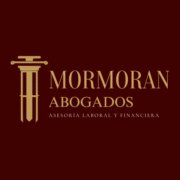Best Communications & Media Law Lawyers in Talca
Share your needs with us, get contacted by law firms.
Free. Takes 2 min.
List of the best lawyers in Talca, Chile
About Communications & Media Law in Talca, Chile
Communications and Media Law in Talca, Chile addresses the legal landscape surrounding the creation, distribution, and consumption of information through various channels. This area of law covers traditional media, such as newspapers, radio, and television, and extends to digital platforms and telecommunications. It regulates freedom of expression, protects intellectual property, manages defamation and privacy concerns, and ensures that media and communications companies comply with national and local statutes. In Talca, local nuances and regional enforcement practices may apply, making it essential to understand how national laws operate in a local context.
Why You May Need a Lawyer
Many individuals and businesses in Talca encounter situations where specialized legal advice in communications and media law becomes crucial. Common scenarios include:
- Defamation and libel disputes, whether as a publisher or as an affected party
- Issues involving freedom of expression or press rights
- Intellectual property conflicts relating to publishing, broadcasting, or online content
- Advertising law breaches, including misleading information or regulatory noncompliance
- Privacy infringements involving media and communications platforms
- Negotiation and contracts for licensing, broadcasting, or content syndication
- Regulatory compliance for radio, TV, or telecommunications operators
- Contesting regulatory decisions or sanctions from local or national authorities
Legal assistance ensures your rights are adequately protected, compliance requirements are met, and disputes are resolved effectively, minimizing exposure to costly litigation or regulatory penalties.
Local Laws Overview
The core laws governing communications and media in Talca derive from Chilean national legislation, with local enforcement by municipal and regional authorities. Key legal frameworks include:
- Law No. 19,733 (Ley de Prensa): Governs freedom of expression, press operations, and the parameters of journalistic activity, including protections against censorship and applicable penalties for infractions.
- Law No. 17,336: Regulates intellectual property and copyright of content distributed via media channels.
- General Telecommunications Law (Law No. 18,168): Sets the rules for telecommunications and broadcasting services, including licensing and operational standards.
- Personal Data Protection Law (Law No. 19,628): Safeguards individual privacy in the collection, management, and dissemination of personal data, increasingly relevant for digital media and telecommunications services.
- Defamation and insult statutes: Specify civil and sometimes criminal liabilities regarding slander or libel published in the media.
- Chilean Consumer Protection Law also applies to media-related advertising and commercial communication, overseen by SERNAC.
Talca, as a regional capital, often adapts its local ordinances in line with these national standards but may also have unique administrative procedures and enforcement bodies dealing with local media regulation.
Frequently Asked Questions
What protections does freedom of expression offer for journalists in Talca?
Freedom of expression is strongly protected under national law. Journalists and publishers have significant latitude but must respect boundaries set by regulations around defamation, privacy, and public order.
What qualifies as defamation or libel in Chilean media law?
Defamation involves publicly communicating false information that injures the reputation of a person or entity. Both the press and private individuals can be held accountable for defamation under civil and, in some cases, criminal law.
How are privacy rights protected when reporting news?
News outlets must balance public interest with individual privacy rights. Personal Data Protection law and defamation statutes ensure that unauthorized or excessive disclosure of personal information can be actionable.
Do I need a license to operate a radio station in Talca?
Yes, operating a radio or television station requires obtaining a license regulated under the General Telecommunications Law, including compliance with technical and content standards.
Can I use photos or articles found online in my own publications?
Most digital content is protected by copyright. Permission or licensing arrangements are typically required for commercial use, as unauthorized use may result in intellectual property infringement claims.
How does advertising law apply to local businesses and media?
Advertising is regulated to prevent misleading or deceptive practices. Media outlets and businesses must ensure advertisements comply with consumer protection legislation, overseen by local and national authorities.
What government agencies oversee media and communications regulations?
Key agencies include the National Television Council for broadcasting, the Subsecretariat of Telecommunications for telecommunications, and the National Consumer Service (SERNAC) for advertising and consumer issues.
What are my rights if I believe a news outlet has published false or damaging information about me?
You may request correction, retraction, or seek damages through civil courts, citing defamation laws and relevant press statutes.
Are there special considerations for digital media platforms in Talca?
Yes, digital platforms must comply with data protection rules, advertising guidelines, and copyright law, similar to traditional media, but may also face additional obligations linked to the internet and digital services.
How can I resolve disputes with media or telecommunications companies?
Disputes can often be addressed through negotiation or mediation. If these steps are unsuccessful, judicial processes in civil courts or through relevant regulatory agencies provide avenues for resolution.
Additional Resources
Several resources are available to help navigate communications and media law issues in Talca:
- Municipality of Talca - Local administrative office for permits and complaints
- National Television Council (CNTV) - Oversees broadcast content and licensing
- Subsecretariat of Telecommunications (SUBTEL) - Manages telecommunications regulations and licensing
- National Consumer Service (SERNAC) - Handles media advertising and consumer complaints
- Chilean Association of Journalists - Offers guidance and resources for media professionals
- Legal clinics at local universities, such as Universidad de Talca, for community legal assistance
Next Steps
If you require legal assistance in communications and media law in Talca:
- Clearly identify the issue and gather all relevant documentation, correspondence, or evidence.
- Consult with a qualified lawyer who specializes in communications and media law to understand your rights and potential remedies.
- If urgent, contact the appropriate regulatory body for preliminary guidance or to file a formal complaint.
- Consider mediation or negotiation as a first step before resorting to litigation, where appropriate.
- Stay informed on local and national legal developments that may impact your case or ongoing operations.
Engaging a knowledgeable legal professional in Talca ensures you are equipped to handle disputes, regulatory requirements, and evolving laws that impact communications and media activities.
Lawzana helps you find the best lawyers and law firms in Talca through a curated and pre-screened list of qualified legal professionals. Our platform offers rankings and detailed profiles of attorneys and law firms, allowing you to compare based on practice areas, including Communications & Media Law, experience, and client feedback.
Each profile includes a description of the firm's areas of practice, client reviews, team members and partners, year of establishment, spoken languages, office locations, contact information, social media presence, and any published articles or resources. Most firms on our platform speak English and are experienced in both local and international legal matters.
Get a quote from top-rated law firms in Talca, Chile — quickly, securely, and without unnecessary hassle.
Disclaimer:
The information provided on this page is for general informational purposes only and does not constitute legal advice. While we strive to ensure the accuracy and relevance of the content, legal information may change over time, and interpretations of the law can vary. You should always consult with a qualified legal professional for advice specific to your situation.
We disclaim all liability for actions taken or not taken based on the content of this page. If you believe any information is incorrect or outdated, please contact us, and we will review and update it where appropriate.









